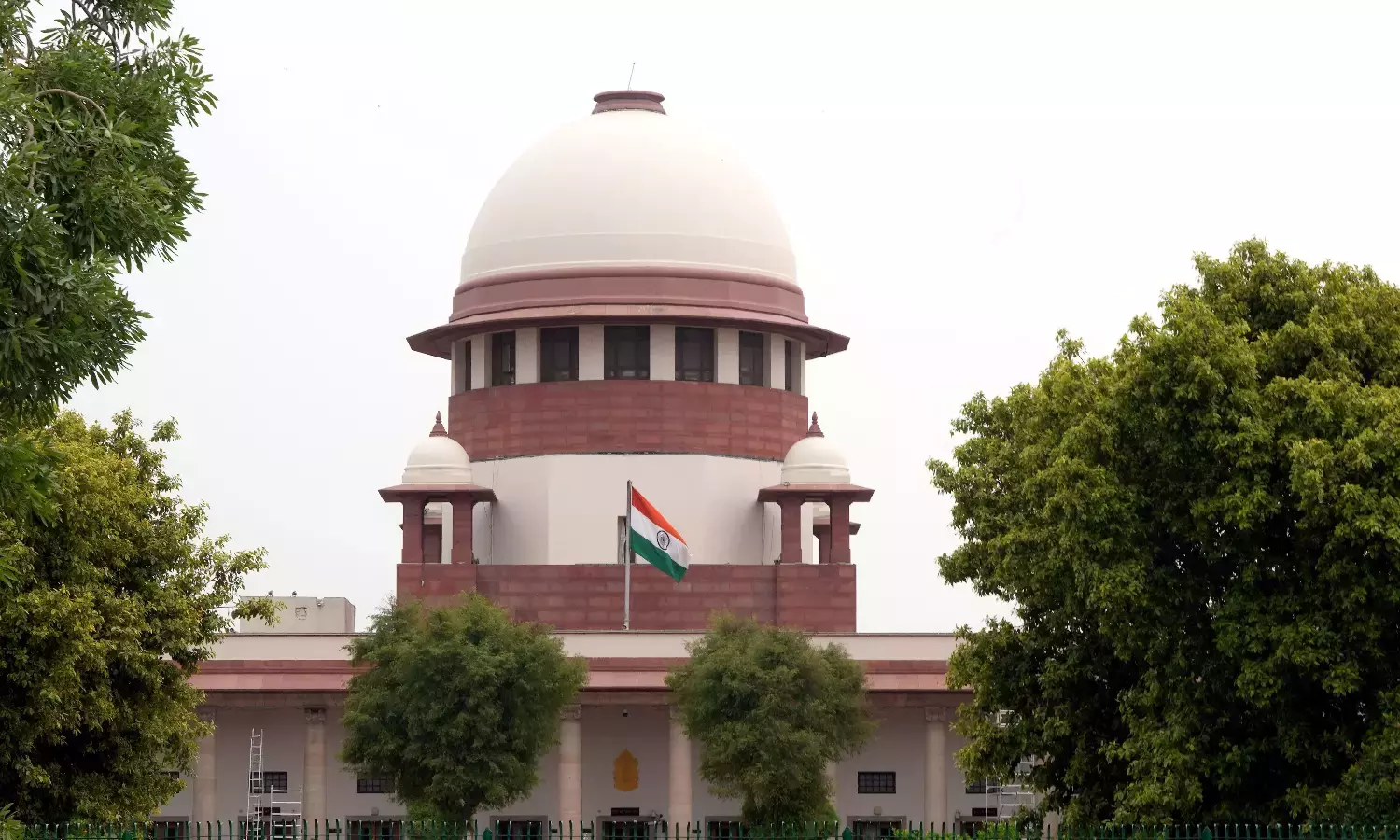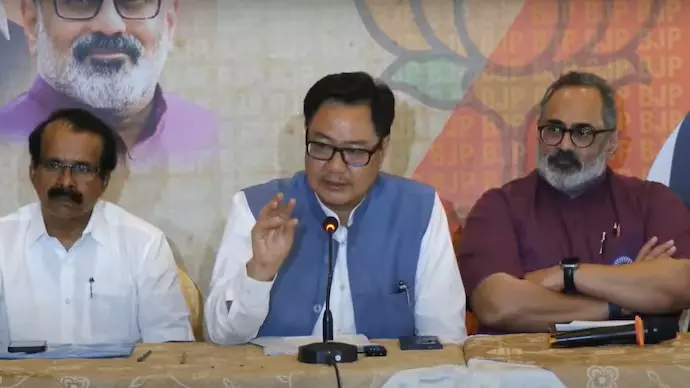
Rijiju assures Munambam residents of remedy, but silent on retrospective scope of Act
text_fieldsAmid uncertainty over the helpful provision in the newly enacted amendments in the Waqf Act, the Union Minister said that the Munambam residents can challenge the Waqf Board's claim in the High Court and Supreme Court as there are provisions helpful to them but was silent on retrospective provision in the amended law.
Union Minister Kiren Rijiju claimed that the Munambam residents, who have been protesting against the Kerala Waqf Board’s assertion that they live on Waqf land—a claim acknowledged by the Kerala High Court—can challenge the Board’s claim under the amended laws, as the amendments have removed several provisions, including 'Waqf by user', and introduced new ones, which will now be subject to judicial scrutiny.
The Union Minister’s claim can be seen as an attempt to assuage the agitating residents—most of whom belong to the Christian community—who have been led by the BJP to believe that the amended Waqf Act could resolve their issues and help them reclaim their land. However, opposition parties, including the Congress, the CPI(M), and several organisations, have pointed out that the Act lacks a retrospective provision, meaning it cannot revisit land already registered under the Waqf Board.
Union Minister Kiren Rijiju, speaking in Kerala on Tuesday, defended the recent amendments to the Waqf Act, asserting that the reforms were introduced to prevent arbitrary land claims and address long-standing grievances related to land ownership. He maintained that the changes were essential for protecting citizens' rights over their property and for checking what he described as excessive powers previously held by Waqf Boards.
He highlighted the controversial Munambam case as a key example, where the Kerala Waqf Board had allegedly declared 404 acres as Waqf property, affecting more than 600 fishermen. While he assured the residents that the recent amendments would offer them legal avenues to challenge such declarations, he did not clarify whether the new provisions would apply retrospectively, leaving ambiguity around the status of past claims.
The Centre, according to Rijiju, has removed Section 40 of the Act, which had allowed Waqf Boards to unilaterally declare any land as Waqf property. Under the revised law, all future surveys are to be led by District Collectors and must rely solely on government records. He underscored the importance of ensuring that no authority exercises unchecked power, especially in matters related to land ownership.
Rijiju pointed out that over 18 lakh properties had been declared as Waqf between 2013 and 2025 and warned that failure to act now would result in the continued loss of ownership by rightful claimants. He said that once land is declared as Waqf, it becomes difficult to reverse, which made the amendments necessary and urgent.
The updated legislation now mandates a registered Waqf deed for any property to be recognised as Waqf, and prohibits the declaration of disputed or sub-judice land as such. The deletion of the "Waqf by user" clause, which had allowed claims without documentary evidence, was another significant change aimed at preventing misuse of the law.
The minister also announced plans to reconstitute all state Waqf Boards and Waqf Tribunals. He clarified the legal principle that once a Waqif dedicates land, it becomes Waqf, but if the land is transferred, it no longer retains that status—an issue he connected to the Munambam case. He indicated that the High Court ruling in a related matter could be challenged in the Supreme Court.
Rijiju criticised the Congress for its 2013 amendments to the Act, claiming those changes enabled sweeping Waqf claims across the country. He said that the current government had introduced strict safeguards, including allowing appeals against Tribunal decisions in High Courts and reforming the composition of Boards and Tribunals.
Addressing allegations that the amendments were anti-Muslim, the Minister asserted that the reforms aimed at protecting the poor, including Muslims, who had often been denied benefits from the Waqf system. He pointed to instances where Waqf Boards had made expansive and unsubstantiated claims, including over entire villages and government institutions.


















